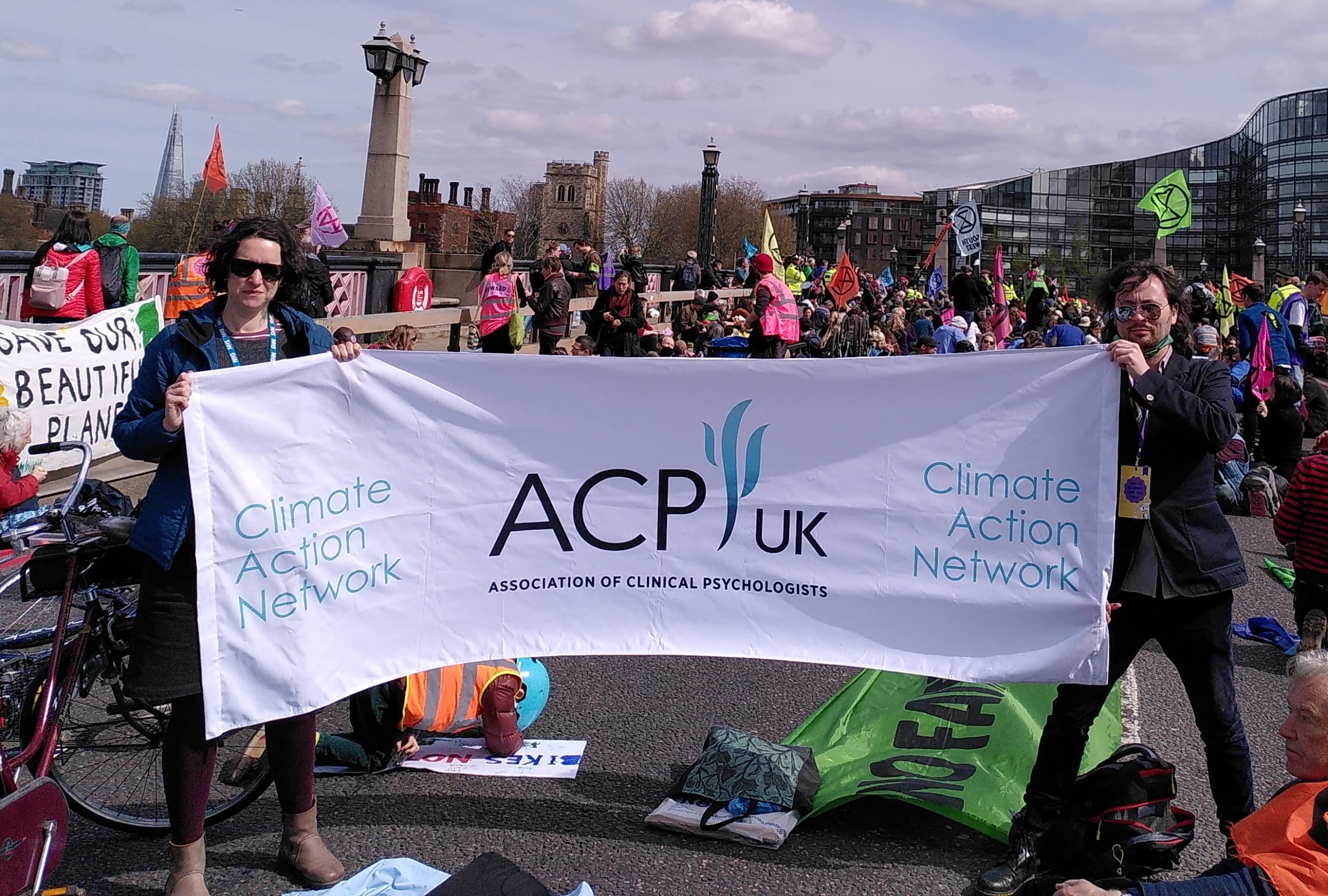Rapid Response on the Approved Plans for the Bristol Airport Expansion
The Association of Clinical Psychologists-UK publicly condemns the incomprehensible decision to approve the Bristol Airport expansion. The UK government has rightly declared a climate emergency, but the approval of the airport expansion is in direct opposition to the radical urgent action required to limit the most severe impacts of the climate and ecological emergencies. This decision contradicts the public commitment to climate protection that the UK made as the leader of the Conference of the Parties’ 26th (COP26) convention in November 2021. The UK also acknowledged its share of emissions from international aviation in the Sixth Carbon Budget, and the need to reduce carbon emissions from flights. This decision comes as some countries have made decisions to ban domestic flights [1]. In addition, the continued governmental support for the Heathrow expansion sets a poor example given the UK’s position as hosts of COP26. It does nothing to support shifting the social norms regarding the permissibility of flying; social norms that rapidly need to shift for a survivable world.[2] [3]
Psychological and health impacts of the decision to permit airport expansion
The World Health Organisation (WHO) has identified the climate crisis as the biggest threat to health. [4]Even before the approval of the Bristol Airport expansion, the UK Health Alliance on Climate Change (UKHACC) had already described the UK government’s existing plans to address pollution as inadequate. Air pollution is linked to increased risk of dementia [5], other significant health problems, and death. [6]
While the Planning Inspectorate report[7] approving the expansion acknowledges some of the physical health risks associated with increased pollution, it fails to acknowledge the impacts on mental health and wellbeing. Extreme weather events linked to climate breakdown have a significant impact on mental health in the UK. [8] [9] The link between higher temperatures and suicide is well-established [10]. Growing awareness of the threats posed by climate breakdown and all that could be lost is resulting in significant levels of understandable anxiety, grief and despair [11]. Similarly, although the report did consider damage to biodiversity, the document does not include content relating to the evidenced impact on the importance of contact with nature for mental health and wellbeing. [12] [13]
At a societal level there is widespread mistrust of the UK government’s handling of the climate crisis, particularly among younger people. Indeed, a recent large scale study of young people’s attitudes found that the perceived inadequacy of government responses was a key factor associated with the high rates of climate distress in their sample [14]. We believe the decision to expand Bristol Airport will further undermine public trust and additionally contribute to the climate distress and sense of institutional betrayal already felt by many young people and others who are understandably terrified about the escalating emergency.
The 1.5C warming limit set by the Paris Climate Agreement in 2015 is close to being beyond reach. Projections following COP26 place the world on pace for a devastating 2.7C warming by the end of the century [15]– a rise that would result in huge areas of the globe becoming uninhabitable and unprecedented levels of food and water scarcity, forced migration and intense weather events [16]. However, the 2.7C projection is based upon nations sticking to the pledges made at COP26. Permitting the expansion of Bristol Airport contributes to a continuing failure to reduce emissions curves and failure to enact pledges, which could result in levels of warming that make human extinction within the century a real possibility [17]. The climate crisis is a social justice issue. Its impact will be most acutely felt by the nations that have contributed least to emissions and have least access to resources to adapt[18] [20].
The decision to approve the Bristol Airport expansion is indefensible in the context of the unprecedented threats we face from the climate and ecological emergencies. As a professional body for clinical psychologists, ACP-UK wishes to add its voice to support the opposition of this decision. We further call on clinical psychology colleagues to engage with and take action in relation to the climate and ecological emergencies[21]. We cannot afford to be neutral when the evidence shows that life on Earth is at stake.
Dr Marc Williams
Dr Rebecca Chasey
Dr Isabel Clarke
Dr Breda Kingston
Dr Gareth Morgan
Dr Alice Walker
ACP-UK Climate Action Network
[1] https://www.theguardian.com/commentisfree/2021/apr/13/france-ban-short-domestic-flights-britain-air-travel
[2] Stoddard, I., Anderson, K., Capstick, S., Carton, W., Depledge, J., Facer, K., Gough, C., Hache, F., Hoolohan, C., Hultman, M., Hällström, N., Kartha, S., Klinsky, S., Kuchler, M., Lövbrand, E., Nasiritousi, N., Newell, P., Peters, G., Sokona, Y., … Williams, M. (2021). Three decades of climate mitigation. Why haven’t we bent the global emissions curve? Annual Review of Environment and Resources, 46(1), 653-689.
[3] Whitmarsh, L., Poortinga, W., & Capstick, S. (2021). Behaviour change to address climate change. Current Opinion in Psychology, 42, 76-81.
[4] https://www.who.int/news-room/fact-sheets/detail/climate-change-and-health
[5] Peters, R., Ee, N., Peters, J., Booth, A., Mudway, I., & Anstey, K. J. (2019). Air pollution and dementia: a systematic review. Journal of Alzheimer’s Disease, 70(s1), S145-S163.
[6] http://www.ukhealthalliance.org/environment-bill-letter/
[7] https://acp.planninginspectorate.gov.uk/ViewDocument.aspx?fileid=46076498
[8] Mulchandani, R., Armstrong, B., Beck, C. R., Waite, T. D., Amlôt, R., Kovats, S., … & Oliver, I. (2020). The English National Cohort Study of Flooding & Health: psychological morbidity at three years of follow up. BMC public health, 20(1), 1-7.
[9] Lawrence, E., Thompson, R., Fontana, G. & Jennings, N. (2021). The impact of climate change on mental health and emotional wellbeing: current evidence and implications for policy and practice. https://tinyurl.com/mvamv6zt
[10] Qi, X., Hu, W., Mengersen, K. & Tong, S. (2014) Socio-environmental drivers and suicide in Australia: Bayesian spatial analysis. BMC Public Health 14, 681
[11] ACP-UK (2021): https://acpuk.org.uk/acp-uk-rapid-response-to-report-on-impact-of-climate-breakdown-on-distress/
[12] Bratman, G., Anderson, C., Berman, M., Cochran, B., de Vries S., Flanders, J., Folke, C., Frumkin, H., Gross, J., … & Daily, G. (2019). Nature and mental health: An ecosystem perspective. Science Advances, 5(7) DOI: 10.1126/sciadv.aax0903
[13] Tillmann, S., Tobin, D., Avison, W., & Gilliland, J. (2018). Mental health benefits of interactions with nature in children and teenagers: A systematic review. J Epidemiol Community Health, 72(10), 958-966.
[14] Hickman, C., Marks, E., Pihkala, P., Clayton, S., Lewandowski, E. R., Mayall, E. E., Wray, B., Mellor, C., & van Susteren, L. (2021). Young people’s voices on climate anxiety, government betrayal and moral injury: A global phenomenon. https://ssrn.com/abstract=3918955
[15] https://climateactiontracker.org/global/cat-thermometer/
[16] IPCC (2021). Climate change 2021: The physical science basis. Contribution of Working Group I to the Sixth Assessment Report of the Intergovernmental Panel on Climate Change. Retrieved 25th August 2021 from: https://www.ipcc.ch/report/sixth-assessment-report-working-group-i/
[17]Bradshaw, C. J. A., Ehrlich, P. R., Beattie, A., Ceballos, G., Crist, E., Diamond, J., … & Blumstein, D. (2021). Underestimating the challenges of avoiding a ghastly future , Frontiers in Conservation Science, 1, DOI=10.3389/fcosc.2020.615419
[18] Barnwell, G., & Wood, N. (2022). Climate justice is central to addressing the climate emergency’s psychological consequences in the Global South: a narrative review. South African Journal of Psychology. https://doi.org/10.1177/00812463211073384
[19] Rice, J., Long, J., & Levenda, A. (2021). Against climate apartheid: Confronting the persistent legacies of expendability for climate justice. Environment and Planning E: Nature and Space, 2514848621999286.
[20] The World Bank (2021). COP26 climate brief: Adaptation and resilience: A priority for development and poverty reduction.











